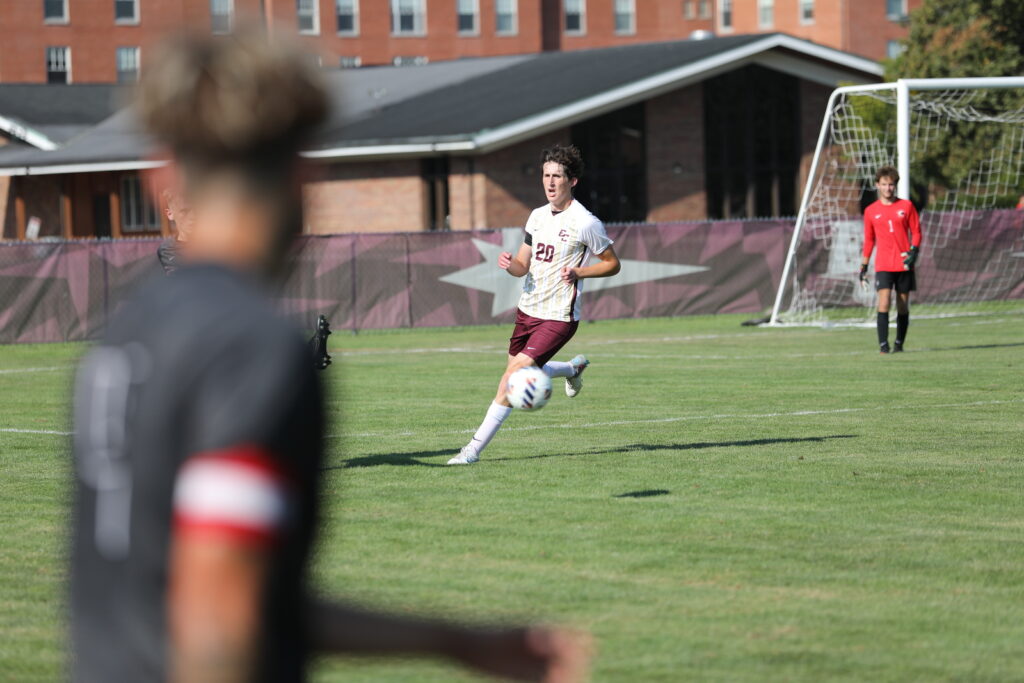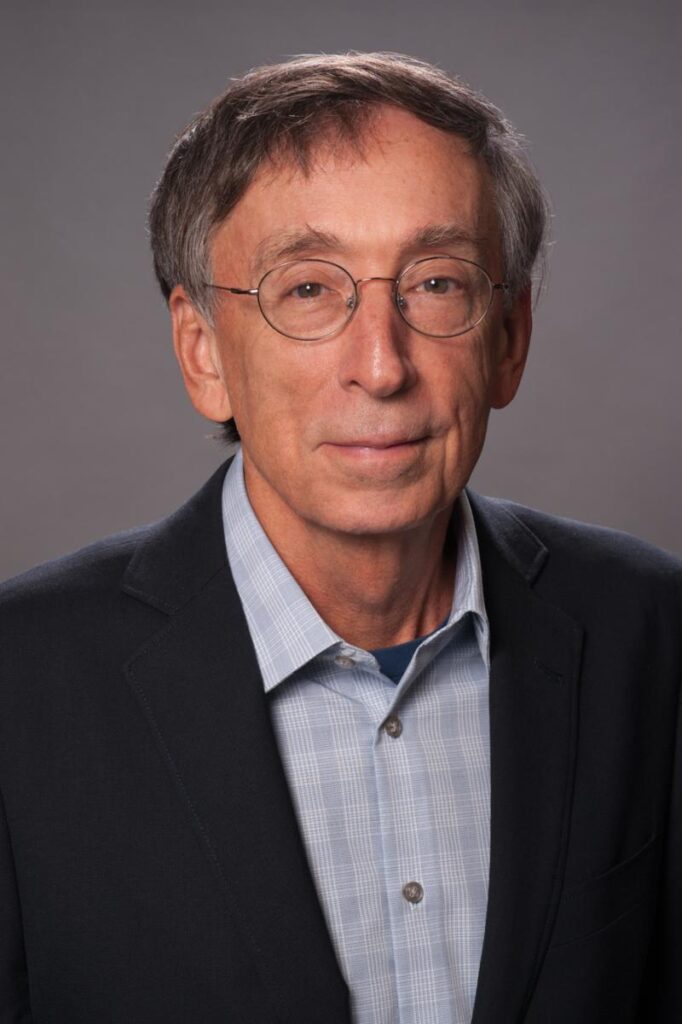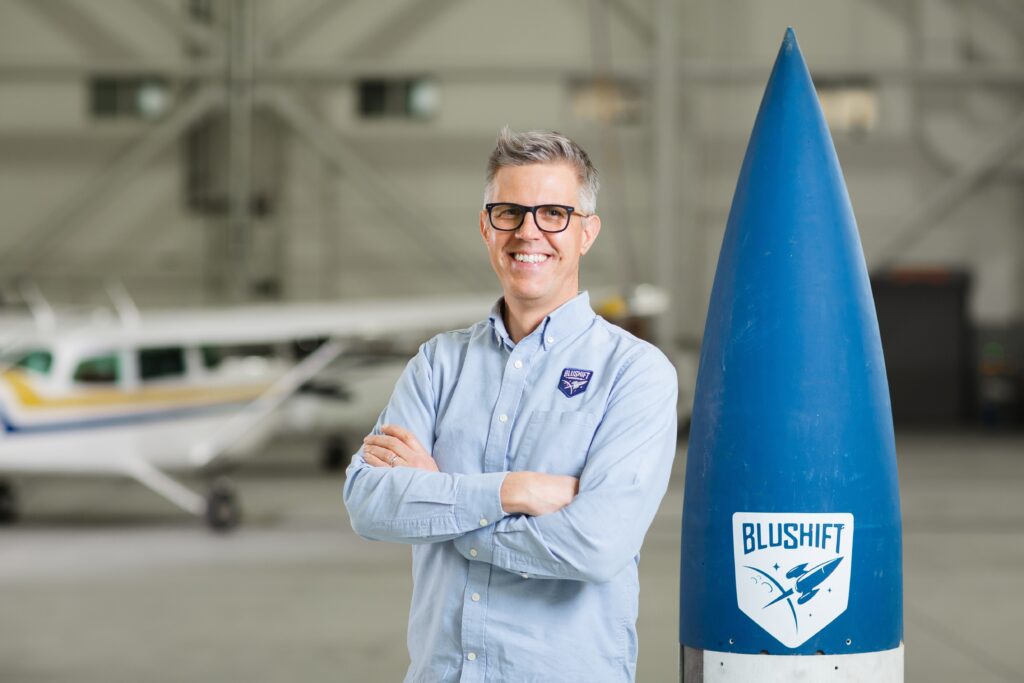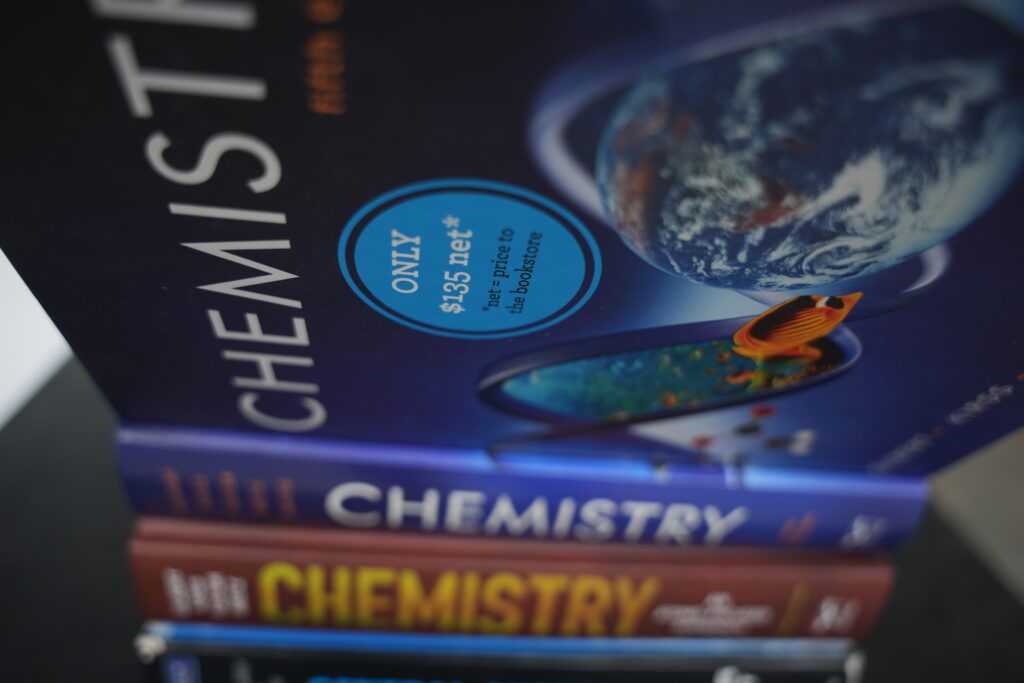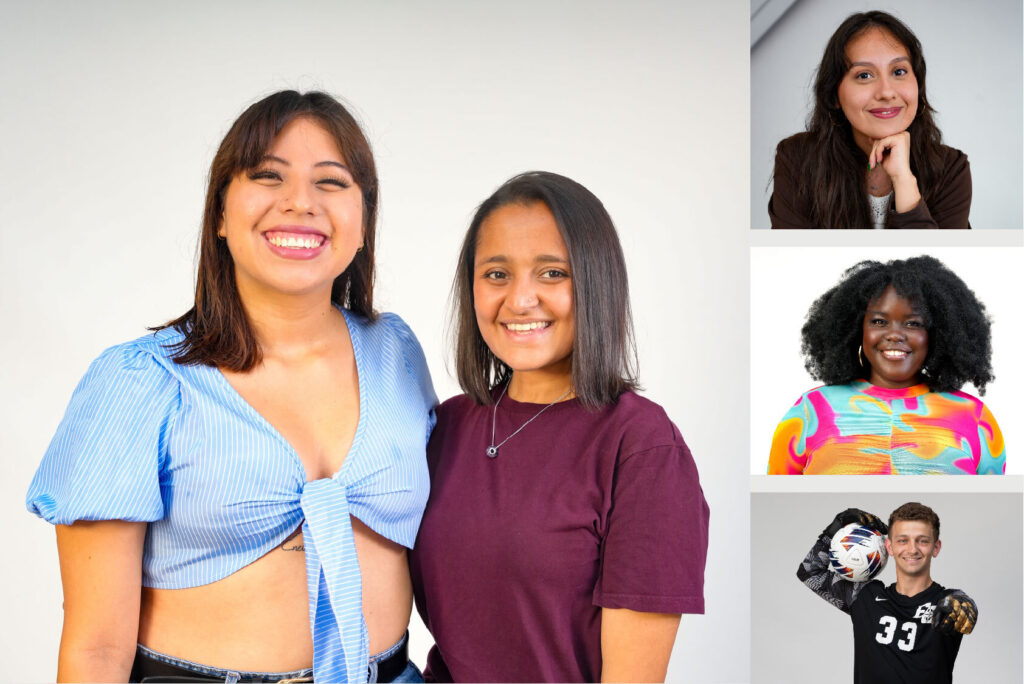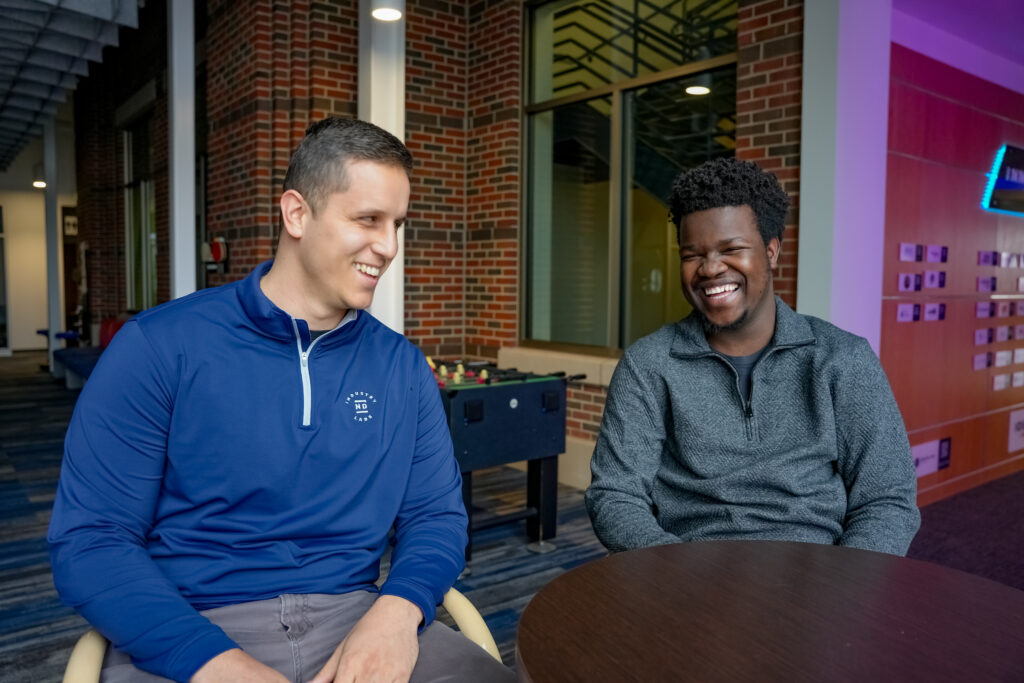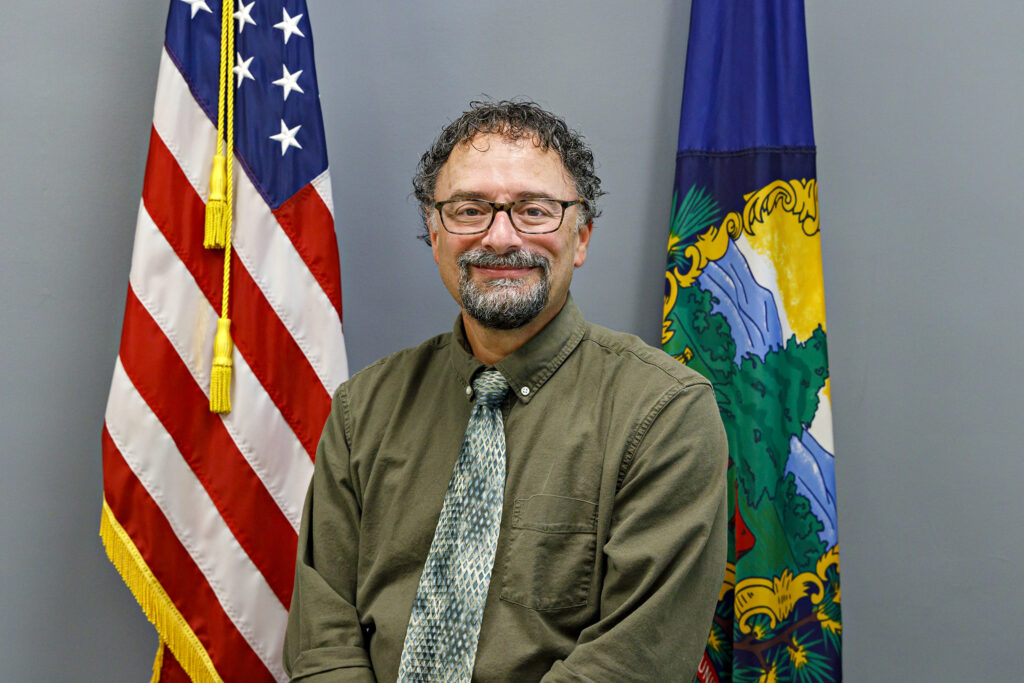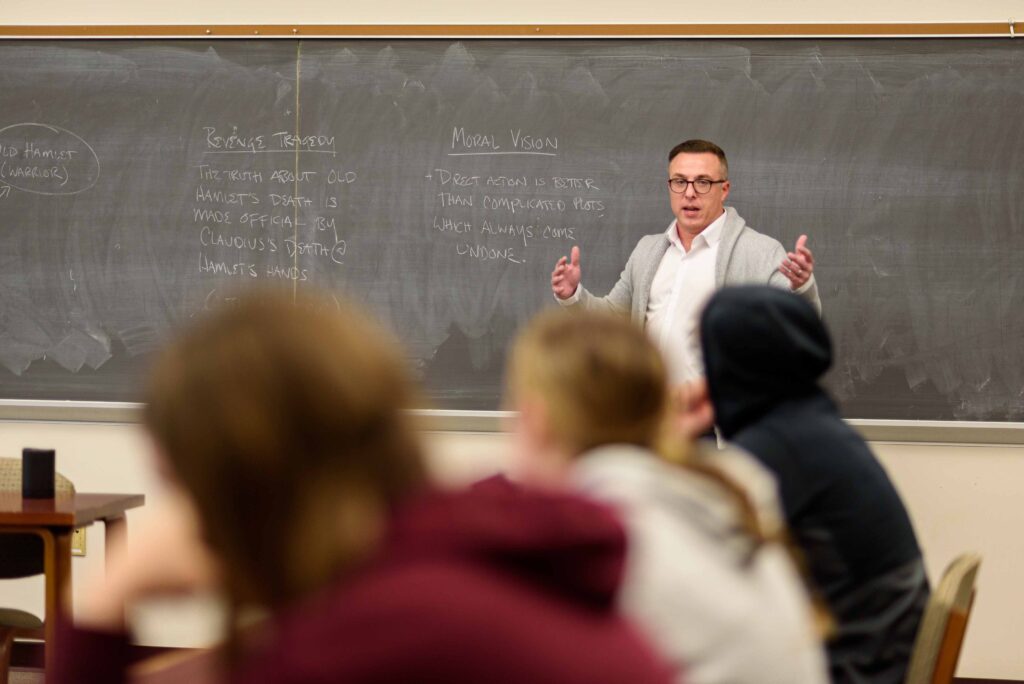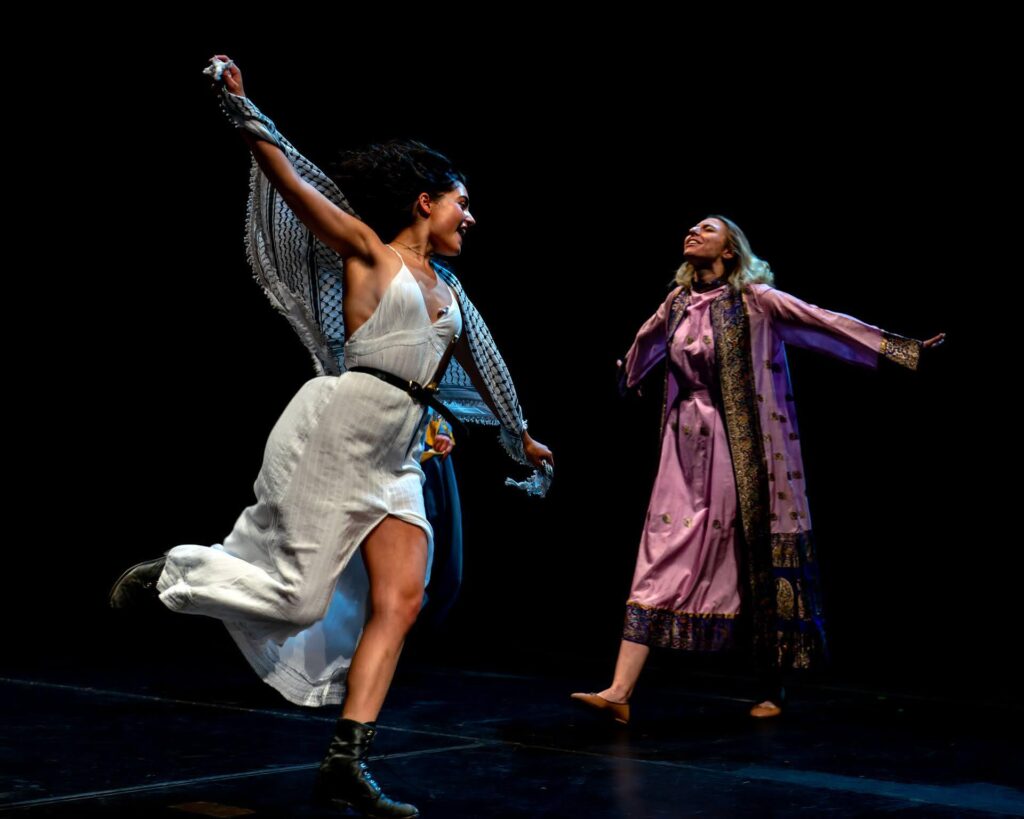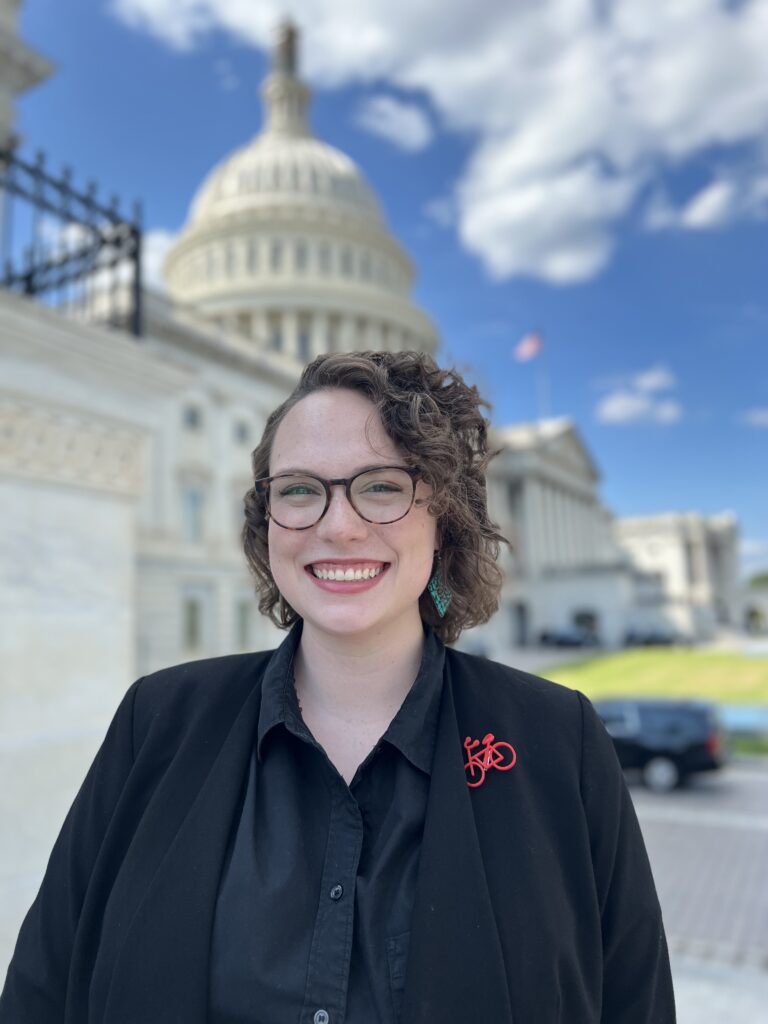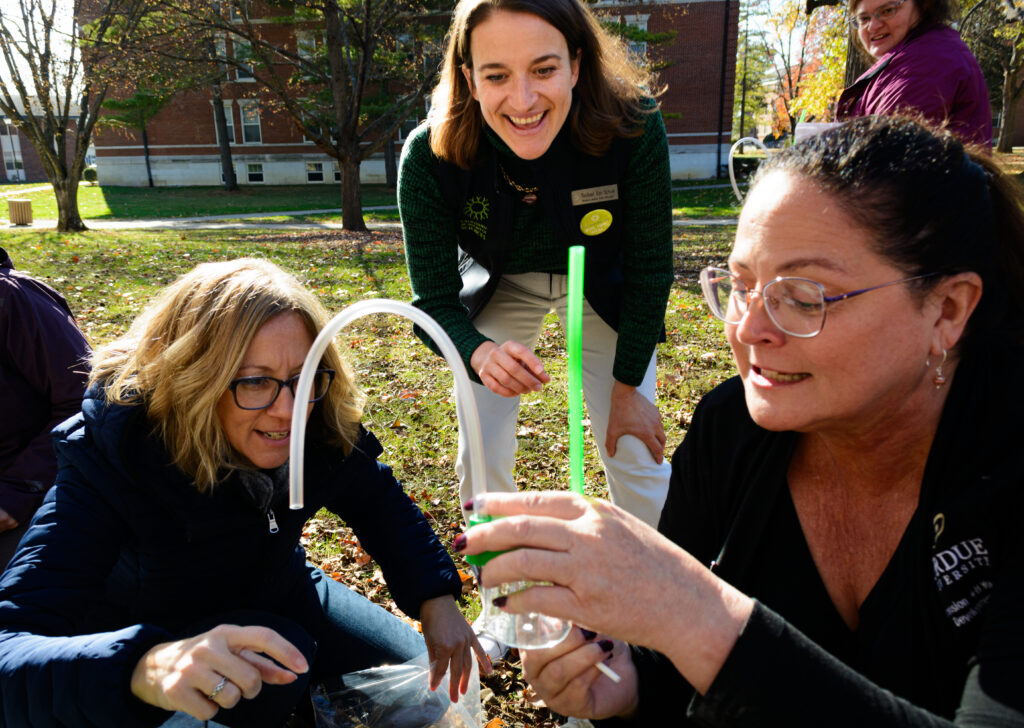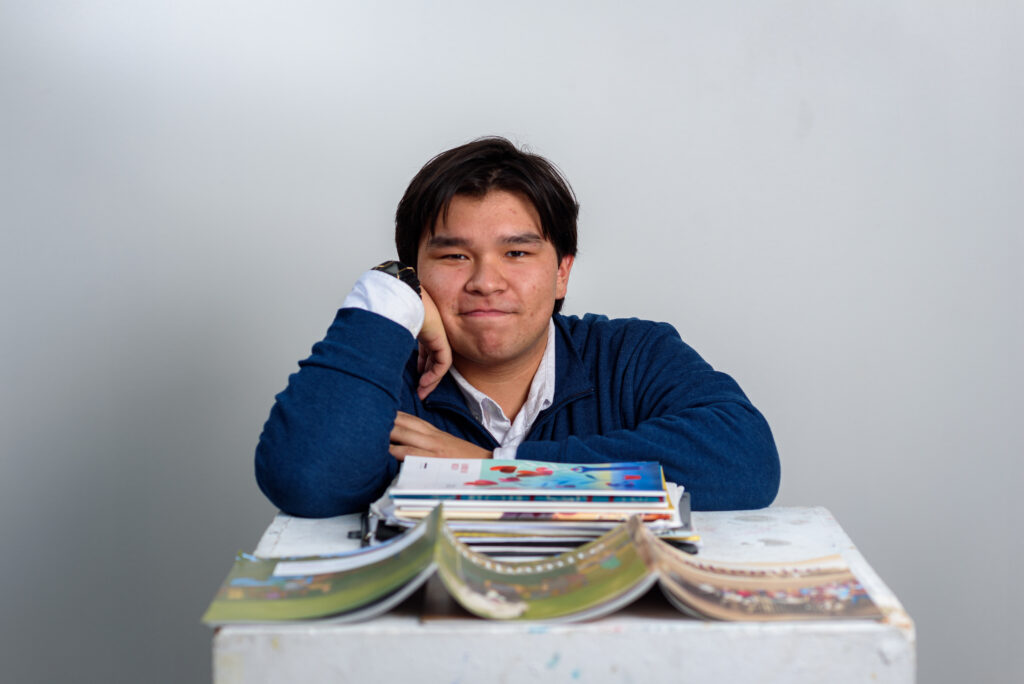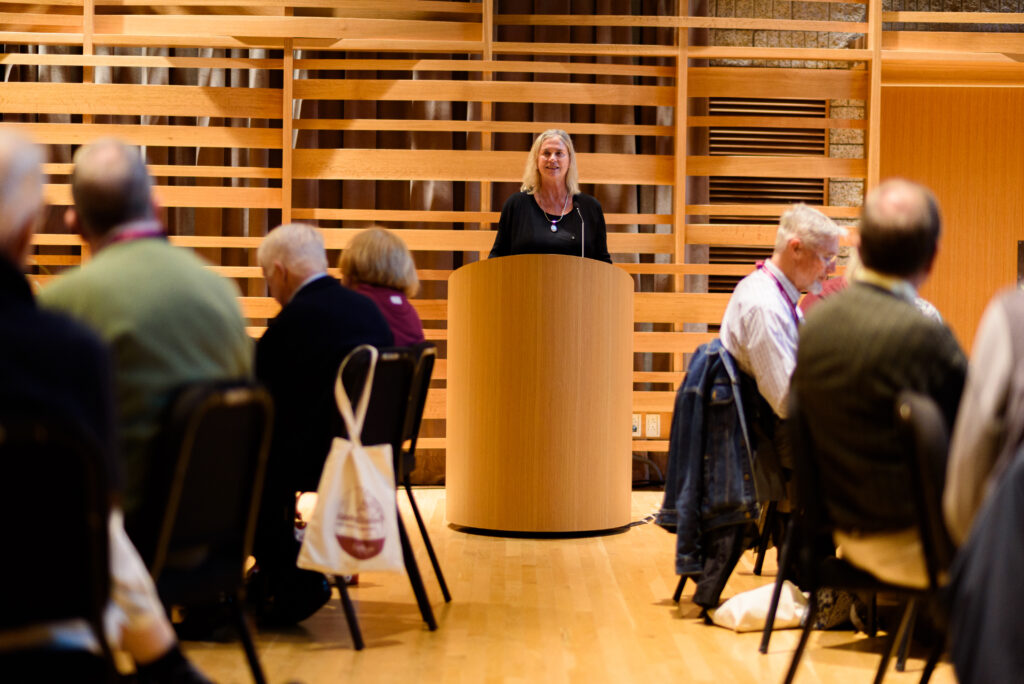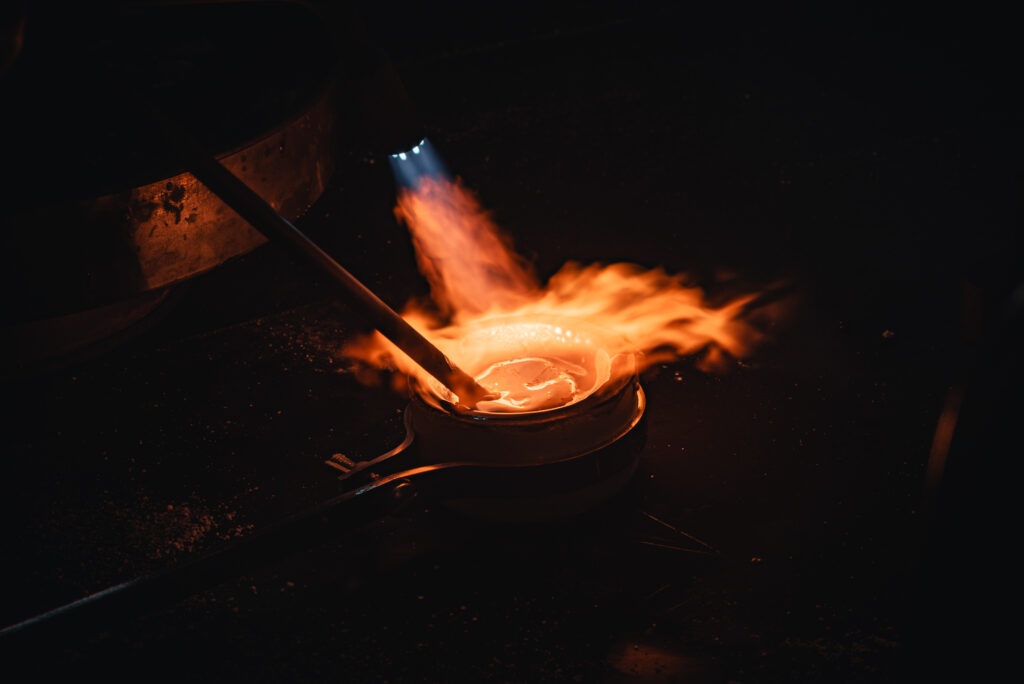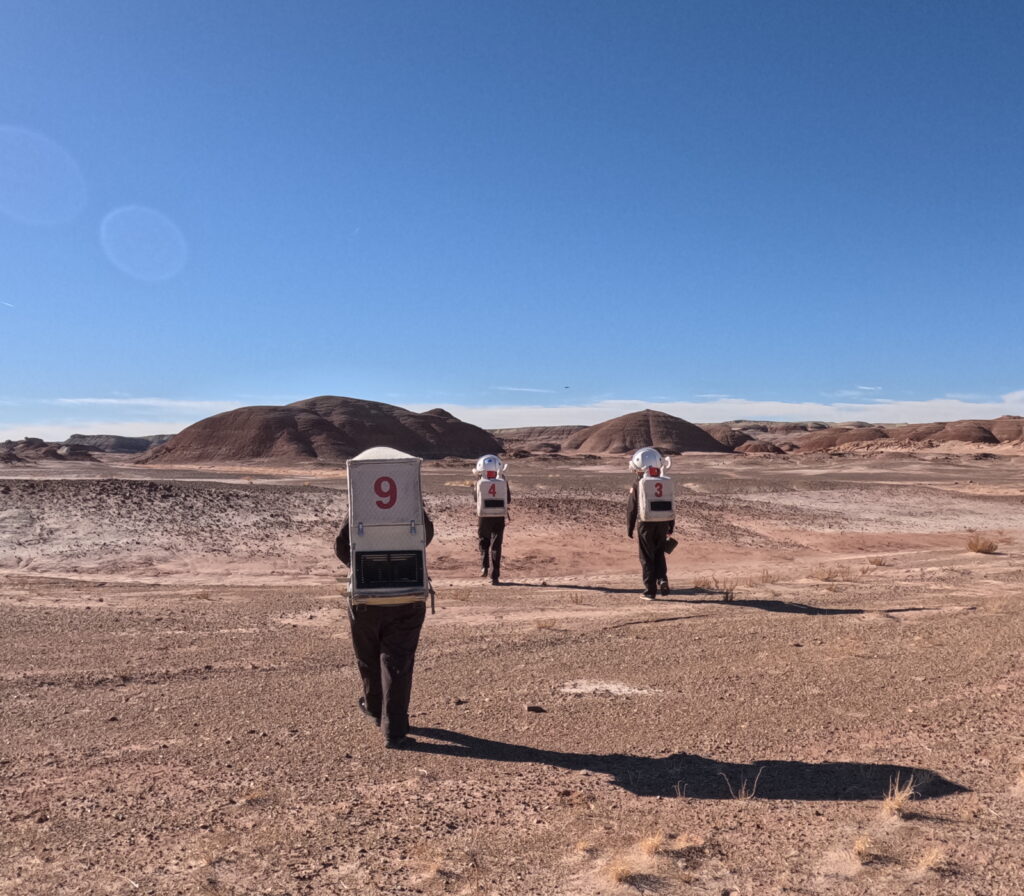If you thought that democracy and Islam were somehow incompatible, Ahmed Khanani would like you to think again.
“We imagine that we’ve figured out democracy, and we imagine that we are living as if the U.S. had nailed it down, especially before 2020 elections,” says Khanani, Plowshares assistant professor of politics and director of the Center for Social Justice. “We’ve ostensibly had it in America for several centuries. But what if we’re wrong? And what if we can learn from other people who understand democracy differently and in ways that can enrich our lives?”
Democracy, as he aims to show in his new book, is not in conflict with values that Muslims hold; rather, for many Muslims it is an extension of those values. Khanani’s book All Politics Are God’s Politics: Moroccan Islamism and the Sacralization of Democracy (Rutgers University Press, 2021) was written after meeting with hundreds of Muslims in Morocco. No translator was used as Khanani had already spent months learning the Darija, the Moroccan dialect of Arabic, before engaging in the interviews, many of which were clandestine for the safety of Khanani’s interlocutors.
Why did you pick Morocco as the site for your research interviews?
Morocco has a long history with the word democracy. Democracy has been part of its political legacy since the early 1900s. So, it has a legacy of having both elections and a monarchy—and the negotiating of power between them. My thinking was, this is an especially interesting place where people will have perspectives on democracy that I might be able to learn from. It doesn’t hurt that Morocco is a gorgeous place. It’s wonderful. People there were incredibly kind and gave me their time and trusted me.
As you mention, Morocco is a kingdom that has as an elected parliament, an arrangement that might remind Americans of the United Kingdom, but there are some significant differences. What might surprise Americans about Morocco?
It’s like the U.K. but at a time when the monarch had significant sway. The U.K. monarchy now is a figurehead. It doesn’t impact policy. In Morocco the role of the monarchy is still substantial. The fact that there is a longstanding tradition of democracy in Morocco might be surprising to Americans. Americans may also not understand how different democracy is there and how people regard their government. For example, I think people imagine that kings are very unpopular, but that’s not the case. People seem to genuinely love the king of Morocco—a lot of people. There are a range of views, with some believing that that the monarchy should be dramatically scaled back and others see the monarchy as trustworthy, whom they contrast with parliamentarians who, as politicians, are “just out for themselves.” Some people imagine the monarch in ways similar to how Americans think of the Supreme Court, where a lifetime appointment allows folks to do good things without pressure to be reelected.
You did interviews for your research, and reading the words of the interviews in your book gave a sense of humanity to it all. Real people speaking in their own voice. What were the benefits of that approach compared to surveys, which is another way you could have gone? It seems like you were able get past some trust barriers, for example.
I got a chance to work with three different groups of Islamists, one of which is formally illegal. Some people had significant concerns about their day-to-day welfare and security. Many of them had been imprisoned on what are, practically, political charges, many were tortured. When they meet, whether for worship or a meal, they’re always aware that there is a nonzero chance that the police will kick in the door and arrest them. So, having an opportunity to work with them was really exciting. There were a lot of gatekeepers. I had to prove to them that I was committed to their telling their truth—that I would share their narratives honestly and accurately, and that I wasn’t in any way connected to the regime. There is no way I could have done that through surveys, I wouldn’t have even been able to find them.
What about your findings gives you hope for the long-term relationship of Islam and democracy?
The thing that is most interesting to me is that everybody I spoke with imagined those two as deeply, deeply, intimately related to one another, such that their practice of democracy was part of their worship, part of their being a Muslim. Part of the Muslim tradition is the idea of consultation—meaning that if you have a big question or if you’re not sure what to do you should consult people around you. And that is how a lot of the people I spoke with talked about voting. So, for them voting is a kind of religious act. Of course, there are Muslims and Islamists who think of democracy as antithetical to the Islam—or what I think of as the Muslim tradition. They think of democracy as intervening with God’s will, or something like that. I think that this suggests that there are multiple possible relationships that are deeply held, but there is a longstanding tradition for democracy in the Muslim tradition that I think most Western observers do not recognize. I don’t think that means that there will be Western style electoral democracies across the Middle East and North Africa—or the Muslim world more broadly, but I do think that there are investments that should be made in thinking carefully about difference, elections and social justice in the Muslim world.
It’s been about 10 years since your research in Morocco, if you were to do a new research project that was similar to your approach, would you choose a different place to do it?
I really like my Morocco project, and wouldn’t change it. I’m deeply, deeply grateful to the people who made it possible. I think my next project is going to engage Muslims in the U.S. It’s going to involve interviews, but not looking at democracy per se. I think it’ll consider how American Muslims negotiate secularism.
As you understand them, what are some of the biggest concerns that students through a Muslim faith have when coming to Earlham. What sort of advice have you had for them?
The advice I have for them is the advice I have for any first-year student: Put your head down and work hard. Don’t be a dummy. If they are not from the U.S., I imagine the bigger cultural negotiations they have are more contingent on country of origin than their faith tradition. One obvious exception to that is with Muslim holidays. The academic calendar is often at odds with Muslim religious holidays. Muslims celebrate Eid for example, and that was the second to the last day of classes this spring. So that is one of the challenges that does have to do with faith, similar to the way it is for Jewish and Hindu students, for example.


